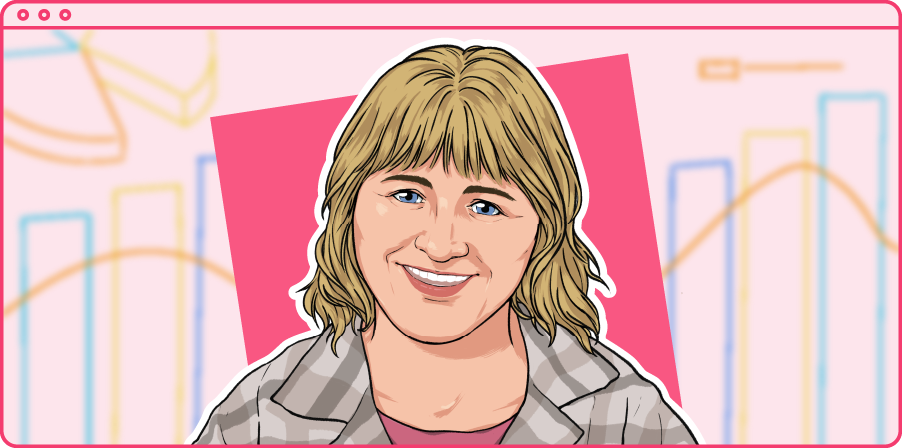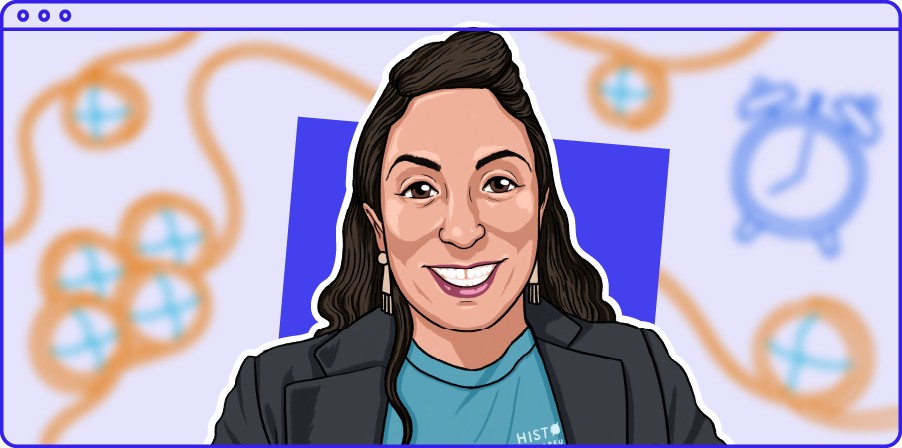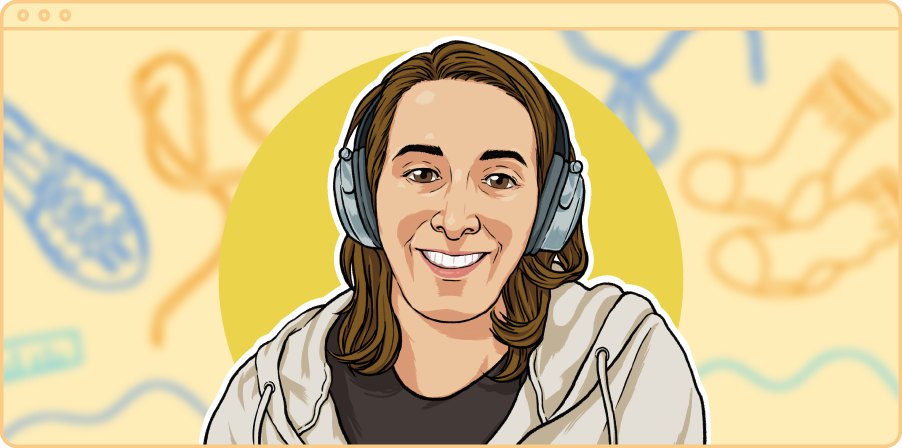Jill Curran owns and operates two tourism businesses in Newfoundland. Lighthouse Picnics was Jill’s first endeavour, which she opened in 2003, selling homemade picnic lunches at the historic lighthouse in her hometown of Ferryland. It’s an award-winning tourist attraction and a lovely day out. Twelve years ago, Jill added a second business, purchasing Maxxim Vacations, a long-standing travel planning company based in Newfoundland.
In this interview, Jill talks about how she strives to create layers of care in travel experiences, so that visitors and communities feel connected by tourism.
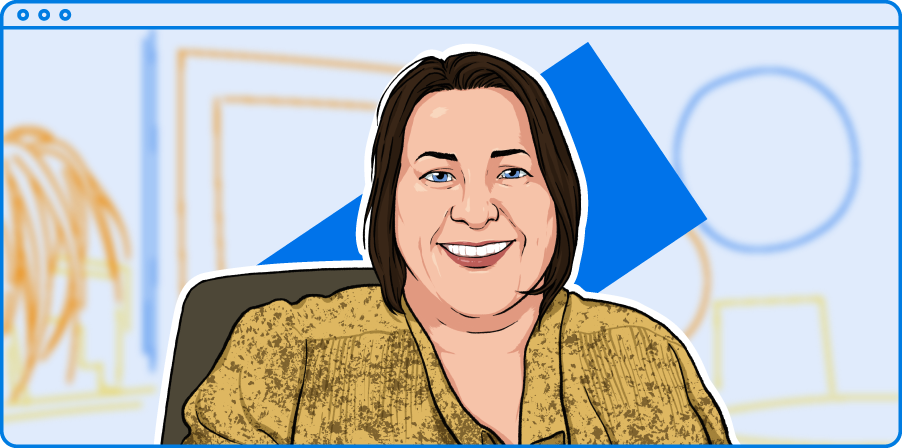
Workomics: Tell us about Maxxim.
Jill Curran: Maxxim plans travel for couples, individuals, and families coming to Atlantic Canada. While this region is known, it’s not well-known enough that people understand the full breadth of the geography and the nuances of the logistics that go into travelling here. We put together itineraries that meet the individual needs of travellers. Our client base is largely Canadian, and our second-biggest market is the US.
It’s been a challenging few years with a client-base that wasn’t allowed into the region because of COVID restrictions — tough, tough times. Thankfully, coming out of COVID, there’s an even greater desire for the natural attributes we have en masse in Newfoundland and Labrador, Nova Scotia, New Brunswick, and Prince Edward Island.
WKO: What prompts someone to work with a company like yours, versus Google their way through?
JC: It’s so funny because when I bought the company 12 years ago, I of course hired accountants and financial advisors. And the first thing my accountant said — even before reviewing the books — was “You know people can do this all online, right? You’re buying a dodo bird. This is on the way out.”
We do have a niche market, and there are some travellers who don’t need us because they enjoy travel planning and digging into all the nuances that we would do for them. But for folks who are less inclined to do their own research, or who have time constraints, we are a local ear to the ground with a huge network of contacts in the arts and culinary scenes. We organize anything from private cooking lessons to guided hikes to literary book tours where people spend the day with local authors. We’re able to bring a whole other layer of access and information that people may not have gotten on their own.
The opening of the Fogo Island Inn has created a whole new market. We work closely with them, because many people who are interested in going to the inn want to add other locations since they’re coming all that way. Many people don’t have the geographic overlay. They think they’ll take the ferry to Port aux Basques and just hop over to St. John’s for lunch, but it’s a 900km drive. We also offer on-the-ground, 24-hour support. If you have a tire blow out in Port au Choix, you can call us, and we’ll figure things out.
I guess the person that comes to us is someone that wants to feel confident they’ve made the most of their time — that it’s well-planned, and someone will take care of any hiccoughs you could run into. But a company like ours also continues to exist because people are seeking connection. A very big term in travel right now is “regenerative tourism.” Visitors feel better for the experience, and you as a community and a host feel better for the visitors being there. Tourism is not good in some destinations. It can overwhelm. It can be an environmental scourge. It can have very negative ramifications.
We want our tourism offering to be in keeping with the scale of our population and our communities. Everything that you see and do is integrated with the communities you’re visiting. If you go to a ceilidh in Cape Breton, there’s just as many local people as visitors. I think that when we can keep the scale right, our communities learn as much about ourselves as the visitor learns about us. When you see yourself through someone else’s eyes, you get a greater appreciation of your life, your community, what you love about where you live.
For our customers, by working with us, I think there’s a feeling of being part of something that’s quite organic, but is bigger than me or the company. It’s a network of people taking care of each other and visitors.
WKO: The role of a business in connecting customers to community is very similar to what you did with Lighthouse Picnics.
JC: Yes, yes, yes! Travel planning is more than booking your car and hotel, just as the lighthouse is more than “here’s a sandwich, go sit there.” I don’t want to sound woo-woo, but there’s layers of care, attention, and love that I think people can feel when it all comes together.
I have an employee here, Christine, who has been here for 25 years. She literally has people who have travelled here with her for years and years because they feel cared-for and connected. I think that’s something we need more of in the world, whether it’s in travel, a restaurant, a bookstore.
If anything good has come out of the pandemic, I think it was a realization of how interconnected we are, and how much we miss that when we’re disconnected.
WKO: It’s interesting because business success is often framed in terms of scale. The themes you’re talking about are care, attention to detail, personalization, longevity of relationships. How you think about scale, and whether there is a size of business that would be too big?
JC: I think the scale needs to be right in everything you do in life, or else there’s something lost. It’s absolutely true that entrepreneurship programs emphasize bigger, bigger, bigger, and that’s a pressure I felt at first. But I’m more comfortable now. Success is much more than your bottom line, how many this you got, how many that you got.
I enjoy coming to work every single day. We work with a team of people here who brought me to tears in the pandemic just because of the kindness shown. What we have here is a family of care that extends into customer experience.
One of my real barometers of success is: are we doing our best? I’m a big fan of what Zita Cobb has done — with the Inn, and also with Shorefast. One of her many Zita-isms is that everything you do, every day, matters. That doesn’t have to be big things. It can be a kind word or a tender moment. For me, I’m very comfortable that our success is based on care. I’m really proud of the amount of our client base that is repeat or referral — that’s a layer of trust, because you wouldn’t recommend to your friends otherwise. We’ve even pulled back on what we used to spend on advertising and marketing.
I’m not naïve. Our approach doesn’t work for every business; some will work best by scaling up. But I know what my comfort level is: the right scale for the level of care and attention that we want to give our customers. It’s same with Lighthouse Picnics. If we went out and bought bread, we could serve hundreds and hundreds of people every day. But we’re committed to making the bread and having that be part of the experience. So far, the Lighthouse has been going for 20 years, and I’ve owned Maxxim for 12 years. All these years in, I’m still really motivated and enjoying my work. If the pandemic didn’t shut that down, nothing will.
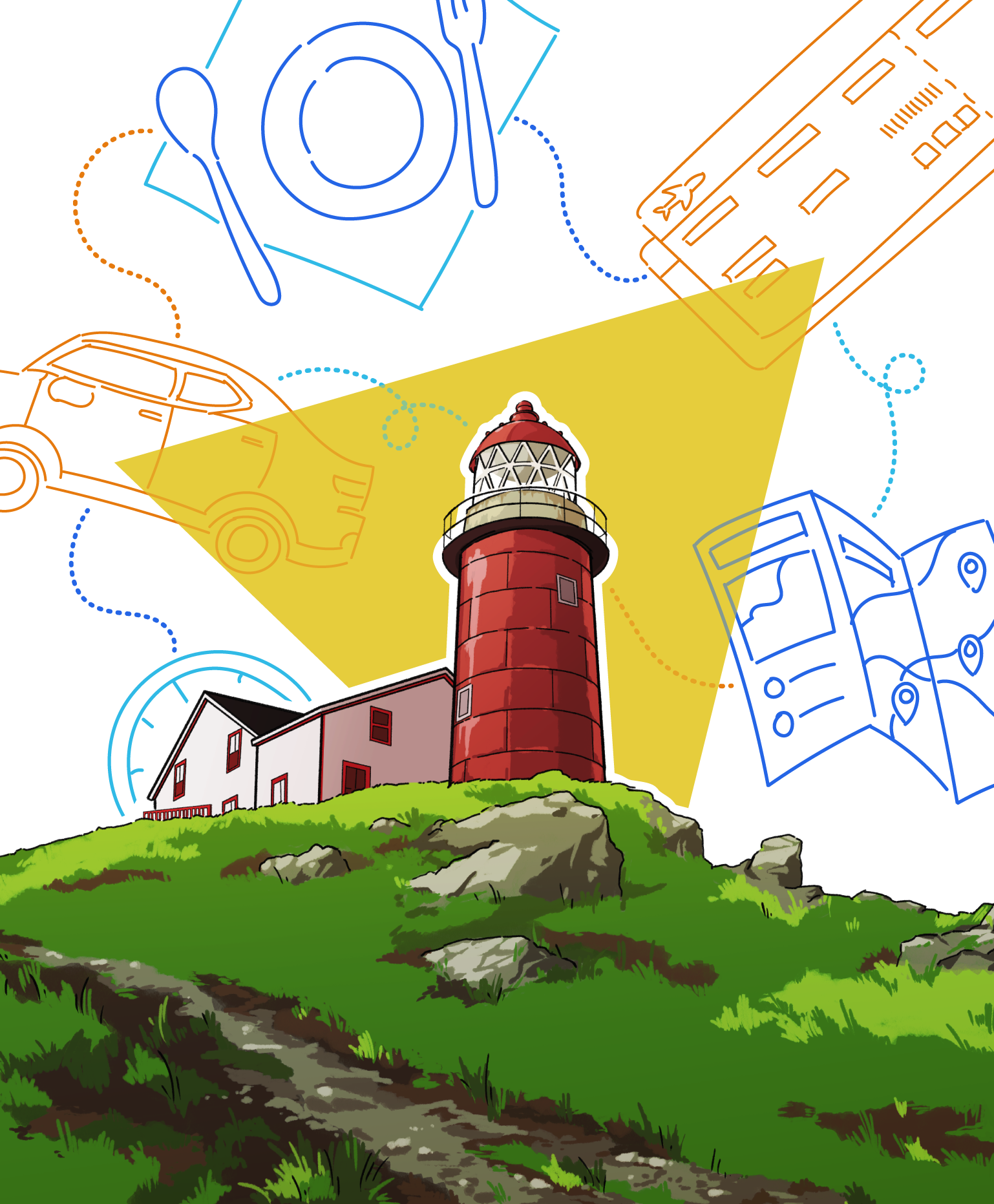
WKO: I would love to unpack that decision to add the travel planning business to the Lighthouse Picnic business. You built the Lighthouse business from the ground up, whereas the second time with Maxxim, you bought a business. How did that come about?
JC: With the Lighthouse, no matter how I tried to expand it, there are only so many months where people are going to want to come and sit outside for a picnic. It was always seasonal. In the winters, I would pick up some kind of contract work. One winter, the woman who owned Maxxim needed a maternity leave cover to do marketing work.
I just loved it. We’re bombarded with decisions of where to travel, and we don’t have endless amounts of money. Where you choose to put that travel money is a big decision for people. I became obsessed with all the different moments and layers that go into someone making that decision. I also saw how the team was doing something really specialized. About two months in, the previous owner told me her eventual plan was to sell the business and she thought I’d be a perfect fit. I thought, “I sell sandwiches at a lighthouse. What do I know?” But she could see something in me that I didn’t see.
It was about a year and a half later that I really started on the journey of buying the business. At that time, the Fogo Island Inn wasn’t open, but it was underway. There were more and more unique properties opening up, and the culinary scene was growing. All of those signals pointed to the travel business being something that could grow.
What I was doing at the Lighthouse was definitely transferable. It’s an intention to bring together the experience of products and place. You can do a hike and have a sandwich anywhere, but with the Lighthouse, we’re trying to bring together the historic building, the natural beauty, the food.
With Maxxim I want to understand someone’s motivations. Everybody has a bit of a movie in their mind of what it would look like to go to Paris or Hawaii. We’re really trying to understand what it is that they’re seeking by coming to Nova Scotia, Newfoundland, or New Brunswick. That way, we can set them on a path with places and experiences that make them feel, “ah, that is what I wanted.” If you’re an introvert and you don’t want someone asking if you want a cup of tea every five minutes, there are certain places where you shouldn’t be. If you love live music and want to chat, that remote cottage on a cliffside is not for you.
Thankfully, as a region, we’re still a place of random connections and random conversations that can lead to the most beautiful moments. We’re not going to over-program your days because serendipity is your best friend in this part of the world.
WKO: How was the experience of buying an existing business different from building one from scratch?
JC: When you’re buying a company, it’s a well-oiled machine. All the systems you need — accounting, booking, IT — were well-in-hand. I was worried that everyone was going to leave because I’m buying the company having never worked in this industry before. But it worked out that everyone has stayed and are still here. We didn’t need a revolution; it was a natural evolution, which lined up with how the travel industry has changed over the years. When I first bought the company, airline tickets were a huge part of what we did. But nowadays, no two seats are the same price, and there are options for extra baggage and extra leg room and whatever else. We moved away from air, and that has worked out because people generally want to make their own flight bookings. But bigger picture, it worked because our business is constantly changing based on customer needs and how the market is shifting.
WKO: How do you split your time between the two businesses, especially in the summer picnic season?
JC: It looks different in the summer. Maxxim is a year-round, fully-staffed team. I’m there most of the time. But I am lucky. Most of the people at the Lighthouse have been with us since we started. When I’m there, they joke that I’m going to mess up their system. Actually, both businesses could be absolutely fine without me, because there’s such a strong team of like-minded individuals that know the purpose of what we’re doing every day. When I’m in one place and not the other, I’m not worried about it. I have so much confidence in the people in both places. We’re all on the same page when it comes to customer service and making sure things are figured out and working well for people.
WKO: That is absolute magic — a secret decoder key for a happy work life. And it’s not just a fluke if you’ve done it twice. What are some of the things you do to help create that team of likeminded individuals that all know the purpose?
JC: It’s a hard question to answer. I guess one example might be when Come From Away opened. I had the chance to see it in workshop here before it opened on Broadway. I came back to the team and said, “I don’t know how they’ve done it, but they’ve captured who we Newfoundlanders are — our culture and our hospitality.” I decided we had to go see it. New York is a big market for us. I knew people were going to call us having seen it. For us to understand why they felt motivated to come and what they loved about the play — those were things that we should know and connect with them about.
Some of the staff couldn’t believe it. “You can’t close the office! No one can get a hold of us!” But we absolutely did. I closed the office, we all went to New York, went to a trade show, and we all went to see Come From Away. We still talk about here in the office.
But I also think it has been a bit of a blessing in terms of the people we’ve been able to attract to work with us. We all share a sense of humour and we laugh every day. We have a lot of fun. But also, everyone understands the level of care that is required for us to be successful at what we’re doing. I’m heavily invested in ensuring these people feel loved and cared for. And then that just continues to who they interact with.
Our other ideas worth exploring
“I want to hang my hat on me”
Krista Lee Hynes, co-founder and managing partner at Ignite Financial, talks about her journey from theatre to financial planning, and why she has always bet on herself.
A new comfort zone
Shiri Levy, co-founder and Chief Scientific Officer at Histone Therapeutics, talks about building a biotech to bring a genetic medicine to market.
Running shoes designed for women
Lindsay Housman, CEO of Hettas, talks about researching and designing a running shoe specifically for women, along with her philosophy on flexible work, and the challenges of fundraising as a female founder.

